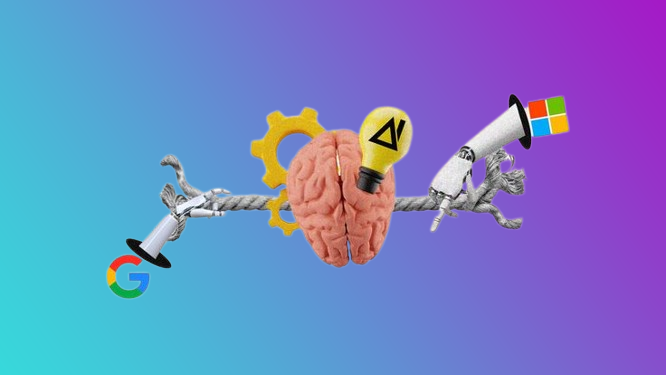The competition among cloud giants—Amazon Web Services (AWS), Microsoft Azure, and Google Cloud Platform (GCP)—is more intense than ever, with artificial intelligence (AI), custom hardware, and strategic partnerships driving the industry's evolution. Here's an in-depth look at the latest trends shaping the cloud computing landscape.
1. AI Takes Center Stage
AWS is doubling down on generative AI, a move underscored at its recent re:Invent conference. The launch of its third-generation Trainium 3 processors and Project Rainier, a massive AI supercomputer developed in collaboration with Anthropic, signals AWS's ambition to lead in AI model training efficiency and cost-effectiveness. Similarly, the introduction of the "Nova" AI models suite, including Nova Micro, Lite, and Pro, aims to empower businesses with customizable AI solutions integrated into Amazon Bedrock.
Microsoft Azure, meanwhile, continues to leverage its partnership with OpenAI, embedding AI capabilities into its Azure OpenAI Service. The seamless integration of ChatGPT and DALL-E into Azure has positioned Microsoft as a key player in generative AI, appealing to businesses looking for cutting-edge tools to enhance productivity.
Google Cloud, not to be outdone, remains a leader in AI-powered data analytics and machine learning services. Its AI-driven innovations cater to industries ranging from healthcare to financial services, ensuring enterprises can extract actionable insights from their data.
2. The Push for Proprietary Hardware
AWS's investment in its Trainium processors reflects a broader trend of cloud providers developing proprietary hardware to reduce reliance on third-party suppliers like Nvidia. Custom chips are becoming essential for supporting high-performance AI workloads, lowering costs, and increasing efficiency.
Similarly, Microsoft and Google are exploring custom silicon for their cloud services, signaling a shift towards vertically integrated cloud solutions.
3. Hybrid and Multicloud Strategies
Enterprises are increasingly adopting hybrid and multicloud strategies to avoid vendor lock-in and enhance operational flexibility. Microsoft Azure's robust hybrid offerings, such as Azure Arc, allow businesses to manage resources seamlessly across on-premises and multiple cloud environments. AWS and Google Cloud also continue to strengthen their hybrid and multicloud capabilities, offering interoperability and easier migration between platforms.
4. Strategic Alliances and Regulatory Pressures
Strategic partnerships are reshaping the cloud ecosystem. AWS's collaboration with Anthropic to build an AI supercomputer exemplifies how partnerships drive innovation. Meanwhile, regulatory scrutiny of Microsoft's licensing practices has prompted AWS to develop tools that facilitate application migration from Windows to AWS, addressing customer concerns over vendor lock-in.
5. Market Share Dynamics
AWS maintains its leadership in cloud infrastructure services, holding 32% of the market share as of 2023, followed by Microsoft Azure at 23% and Google Cloud at 10%. However, the AI boom has spurred faster revenue growth for Azure and GCP. AWS recently reached a $100 billion annual revenue run rate, while Azure and GCP posted growth rates of 31% and 28%, respectively, reflecting increasing enterprise reliance on cloud-based AI solutions.
The Road Ahead
The future of cloud computing will be defined by advances in AI, custom hardware, and the growing adoption of hybrid and multicloud strategies. As AWS, Microsoft Azure, and Google Cloud continue to innovate, enterprises stand to benefit from a richer array of tools and services tailored to meet their evolving technological needs. Whether through AI-powered analytics, cost-efficient processors, or seamless cross-cloud integrations, the cloud giants are poised to shape the next wave of digital transformation.
This dynamic landscape highlights the opportunities and challenges ahead for enterprises navigating the ever-evolving cloud computing industry.





















Discussion